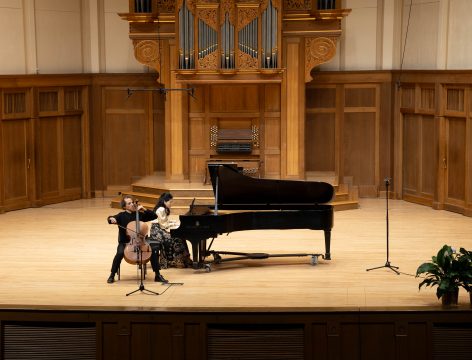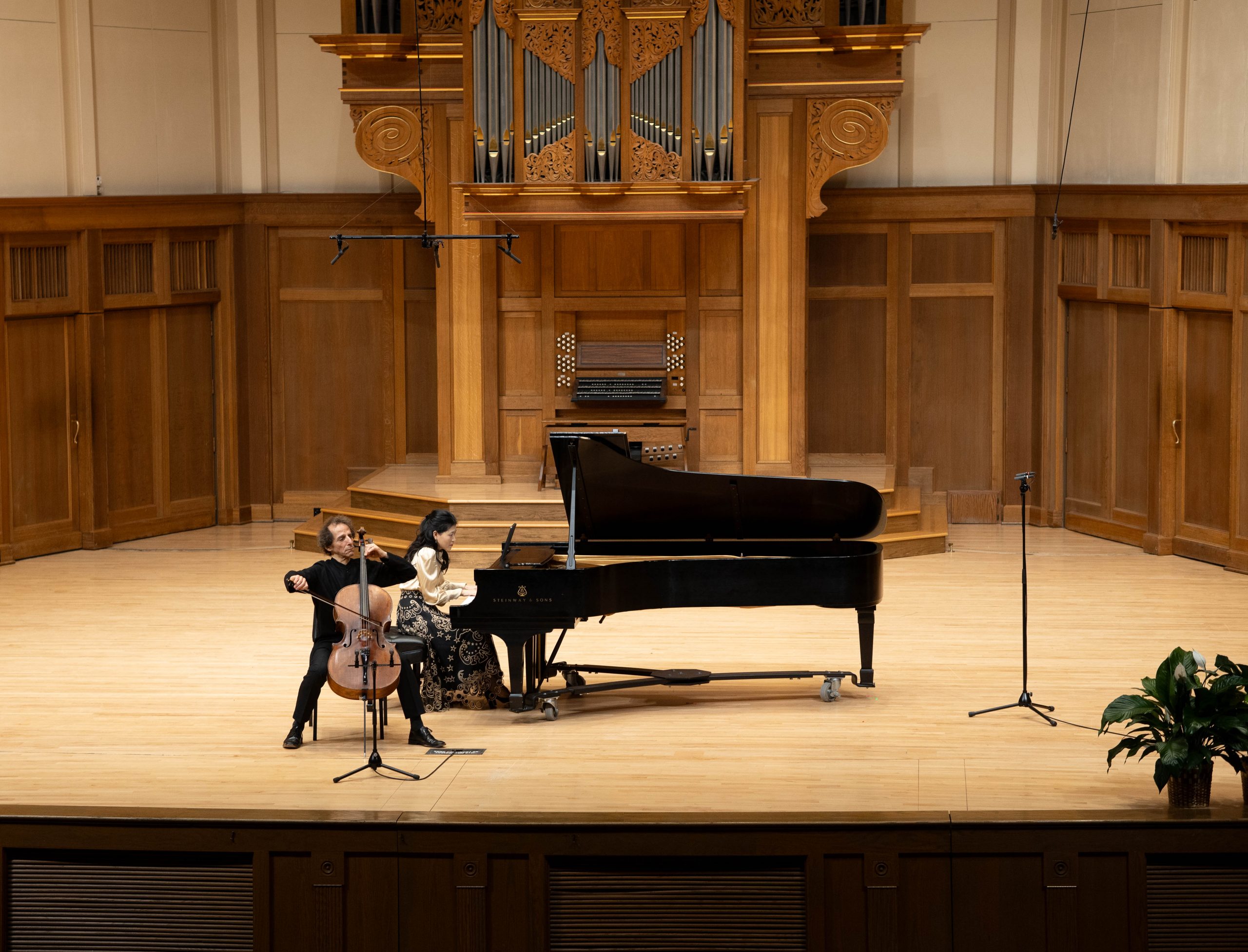On Feb. 3, students and Appleton residents trickled into the Lawrence Memorial Chapel to attend a faculty-guest recital for Colin Carr, a cellist, and Kyungwha Chu, a pianist. Unbeknownst to myself, these guests to Lawrence are rather renowned in their respective instruments. Carr is a British cello soloist, chamber musician and professor of the cello at the Royal Academy of Music (RAM) in London, England, and has won many prestigious international awards for his work. Chu is an award-winning piano soloist and chamber musician, performing throughout the United States, Canada, Asia and Europe. She has been in various orchestras, including the Seoul Symphony Orchestra, and is currently working on her doctorate for the piano (Doctor of Musical Arts, DMA).

Lawrence Memorial Chapel. Photo by Kai Frueh.
The duo began the concert with Ludwig van Beethoven’s Cello Sonata No. 3 in A Major, Op. 69. This sonata consists of three movements, which are titled as follows: “Allegro ma non tanto,” “Scherzo: Allegro molto” and “Adagio cantabile – Allegro vivace.” Funnily enough, these titles roughly translate to “Cheerful, but not so much,” and “Joke: very cheerful.” “Adagio cantabile – Allegro vivace” instructs its player to play slowly (adagio) in a singing manner (cantabile), then cheerfully and lively. These translations are fun to take into consideration because they highlight the musical intention and suggest how the music should make you feel.
All too soon, Beethoven’s piece was completed, and Chu stepped out for a short while, leaving Carr to perform Cello Suite No. 3, Op. 87 by Benjamin Britten. Before jumping into it, Carr noted that this was one of his favorite pieces to play and ended his short speech with “Anyway, I hope you like it as much as I do.” This bit was touching, as it shows how much of themselves musicians put into their art.
The Third Suite consists of nine movements, performed without pause, and it has Russian influences and themes; parts of it include arrangements of folksongs, and its final Russian tune is the Russian Orthodox Hymn for the Dead. The piece, overall, starts out slow before launching its listener into a whirlwind of emotions. My favorite fragment from one of the movements was when Carr made his cello emit shrill melodies that gave me goosebumps and set me on edge, reminding me of the thrilling music featured in horror movies.
After a quick intermission, Kyungwha Chu returned with Carr, and they played a piece by the Russian composer Sergei Rachmaninoff. This piece is titled Cello Sonata in G minor, Op. 19 and consists of four movements. Its 35-minute performance starts out slowly, jumps into a playful tune, then reels itself back into a moderate and slow tempo, before wrapping up in an animated and rapid finale. The intertwined cello and piano in this piece were an utter delight.
Chu and Carr finished and bowed to a standing ovation. They left the stage before returning soon after for an encore. The show was well worth the watch, and I am sure its viewers left in awe, as both performers put their hearts, souls and craft into their performances.

